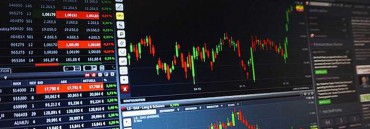DEFINITION of Index Trading
Index Trading is a type of trading of a group of stocks which make up the index.
WHAT IT IS IN ESSENCE
An Index is a measurement of the value of a section of the stock market. It is computed from the prices of selected stocks. The plural term is indices.
In other words, in trading, an index is a grouping of financial assets that are used to give a performance indicator of a particular sector.
Indices are only indicators of the collective movements of a group of assets, they have no physical value. That’s why indices are measured and move in points, rather than in currency.
Indices traders are unable to trade any index directly. They have to do so through derivative products like spread bets, CFDs, futures or ETFs.
Only in that way, traders can speculate on the movements of indices without buying every single asset.
Several asset classes can have indices. The best known are stock indices and commodity indices.
Every index has its own means of calculating value.
HOW TO USE
Two primary criteria of an index are that it is investable and transparent. The method of its construction should be clear. Many mutual funds and exchange-traded funds attempt to “track” an index with varying degrees of success. The difference between an index fund’s performance and the index is tracking error.
Stock market indices may be classified in many ways. A ‘world’ or ‘global’ stock market index such as the MSCI World or the S&P Global 100 includes stocks from multiple regions. We may recognize the regions by geographically (e.g., Europe, Asia) or by levels of industrialization or income (e.g., Developed Markets, Frontier Markets).
A ‘national’ index represents the performance of the stock market of a given nation and by proxy, reflects investor sentiment on the state of its economy.
Some indices have multiple versions. These versions can differ based on how the index components are weighted and on how dividends are accounted for.
An index may also be classified according to the method used to determine its price. In a price-weighted index, the price of each component stock is the only consideration when determining the value of the index.
Price movement of even a single security will heavily influence the value of the index even though the currency shift is less significant. Thus, a relatively small shift in the price of a large company will heavily influence the value of the index.

